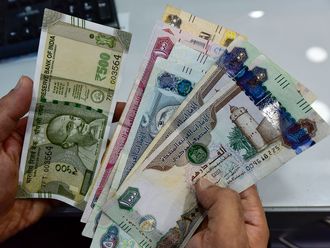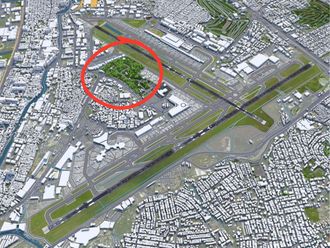Gold
Gold prices steadied on Wednesday, as escalating unrest in the Middle East and North Africa underpinned the safe-haven demand, but the rise lacked momentum due to easing fears over Japan's nuclear crisis and a modest rebound in the dollar.
The troubles in the Middle East turned increasingly violent with Syrian troops opening fire on protesters and Yemen's president warning that the country would slip into civil war if he was forced to quit.
Oil prices have moved in tandem with gold since the Middle East tensions broke out at the end of January. Lofty oil prices have stoked worries of inflation down the road, adding to gold's allure as an inflation hedge.
Bullion has been moving in a narrow range of $4 in the past two sessions, lacking momentum for a further rise on easing fears over Japan's nuclear crisis, even though the battle to contain the problem was ongoing. Profit-taking was spotted as prices rose towards $1,430, seen as a key resistance level.
Euro
The euro slipped on Wednesday, retreating from a 4 1/2-month high against the dollar as worries about debt problems in Portugal and Ireland sapped appetite for the currency and its near-term outlook is seen hinging on whether Lisbon's make-or-break attempt to garner parliamentary support for its austerity measures will succeed.
Portugal's political crisis has quashed the latest rally in the euro, which climbed to $1.4249 the previous day, but investors believe that any selling in the euro if the government fails was unlikely to extend far below $1.41, given expectations EU leaders are close to agreeing the details of a debt-rescue fund, while euro zone interest rates are widely seen rising next month.
Lisbon's parliament will vote on the government's latest austerity measures on Wednesday and Prime Minister Jose Socrates has threatened to resign if the opposition fails to approve the measures, setting the stage for a potential collapse of his minority government a day before a European summit where leaders are due to discuss steps to deal with debt problems.
US dollar
The dollar slipped a touch on the day to 80.90 yen, but stuck close to 81.00 yen region as traders turned cautious about buying the currency after the Group of Seven (G7) countries sold it last week in their first joint intervention in more than a decade.
Market participants were wary of intervention particularly below 80.50 yen, where the Bank of Japan came in last Friday, while few in the market expected big gains in the dollar.
Heavy exporters offers are already lined up above 82.00 yen, with more seen around 83.00 yen, and the trader added he suspected the balance of dollar/yen flows would be tilted towards dollar selling during the last stretch of Japan's financial year ending this month, as Japanese exporters are likely to sell.
The G7 may have sold around 530 billion yen ($6.5 billion) last Friday as they intervened to weaken the currency, data from the Bank of Japan showed on Tuesday.
Oil
US crude futures were hardly changed in early Asian trade on Wednesday as concerns over fighting in oil producer Libya and unrest in Yemen were weighed against expectations official US figures would show crude oil stocks rose last week.
In a report late on Tuesday, the American Petroleum Institute reported that US crude inventories rose less than expected last week and gasoline stocks posted a huge draw, despite a jump in both crude and product imports and a small increase in refinery run rates.
Western nations waging an air campaign in Libya agreed on Tuesday to use Nato to drive the military effort but lack the backing of all alliance members and are divided on the mission's leadership. Muammar Gaddafi's forces attacked two west Libyan towns, killing dozens, while rebels were pinned down in the east.
Indian Rupee
The Indian rupee was little changed on Wednesday as local shares turned positive and helped offset the impact of euro's loss against the dollar and weak regional currencies.
Higher payments for oil imports could be partly cushioned by remittances and inflows from corporate borrowings before the financial ends on March 31.
The rupee traded between 44.9450 and 45.0250, and should move in a narrow 44.90-45.10 range through the day. Indian shares which have been amongst the worst performers this year, rose 1 per cent on bargain hunting by investors after a weak opening.
Foreign funds have sold about $1.9 billion of stocks this year, after buying a record $29.3 billion in 2010.
Source: Richcomm Global Services DMCC, Dubai; www.richcommglobal.com
Price Update
GOLD
1428.65
SILVER
36.24
EURO
1.417
GBP
1.6368
YEN
80.86
RUPEE
44.94
AED / INR
12.238
AUD
1.0097
CHF
0.9032
CAD
0.9815
OIL - WTI)
104.55
Date
March 23, 2011
Time
10:50:42 AM












